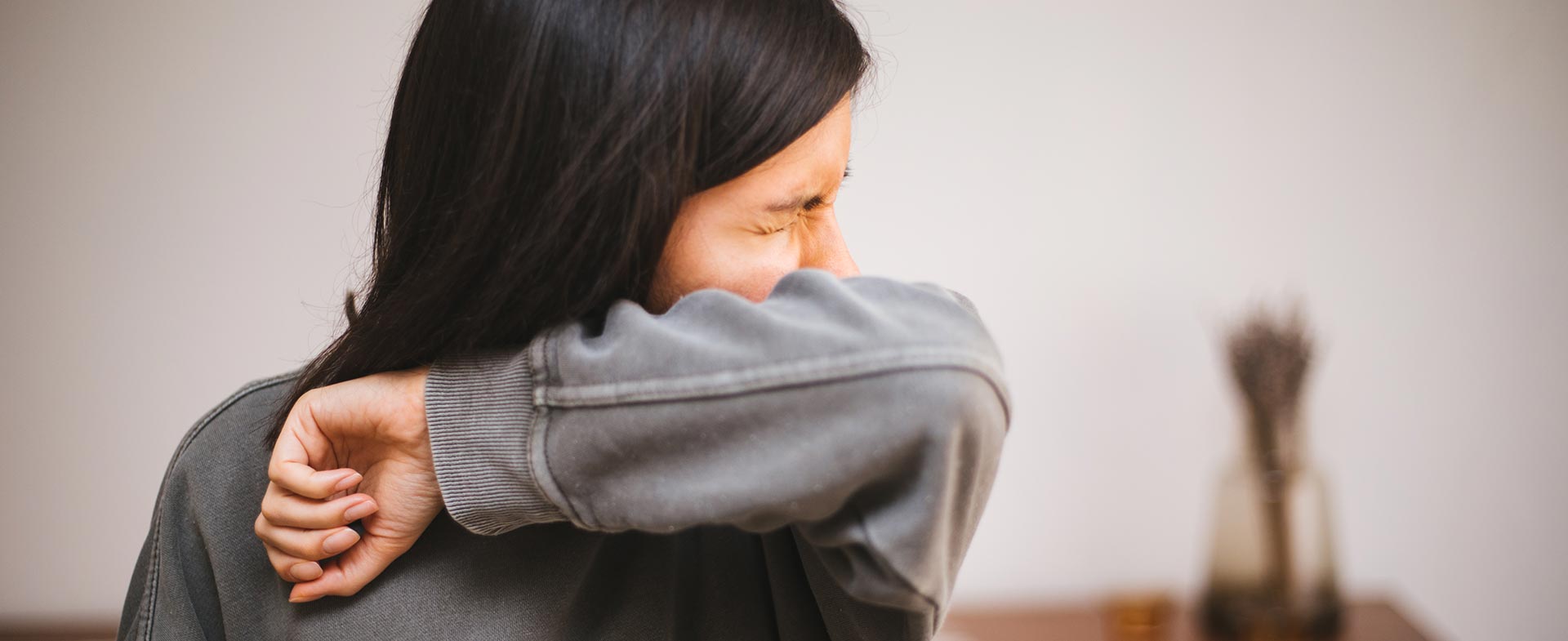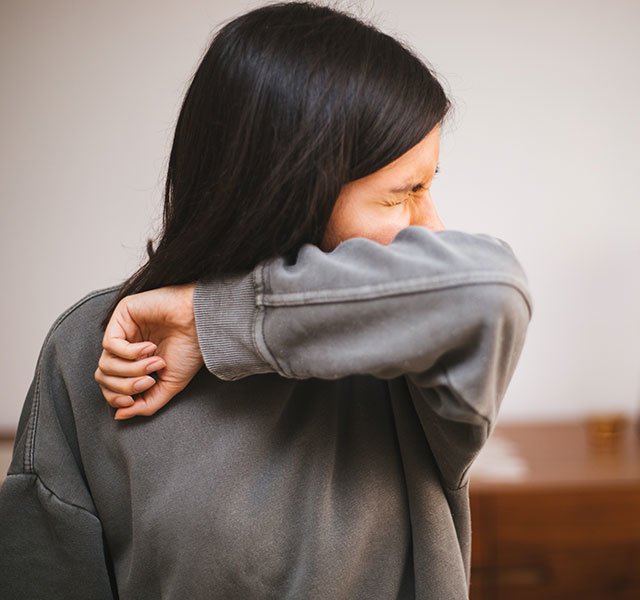We all know the feeling – you get the little twitch in your nose that won’t go away. You may wipe or itch your nose, but you don’t find relief until you let out a big ACHOO.
We all sneeze. It is just your body’s natural way of clearing out debris from the nose. While most people only sneeze a few times a day, there are other factors that could contribute to a change in your sneezing habits explains Frederick Yoo, M.D., an otolaryngologist and sinus surgery specialist at Henry Ford Health.
“Sneezing is often triggered by irritant to the nose,” says Dr. Yoo. “Your trigeminal nerve is a large nerve with branches to different parts of the face and irritation, from allergens, objects in the nose, boogers and mucus, of this nerve in the nose triggers the body to sneeze.”
Some other sneezing triggers include:
- A full stomach. Called a snatiation reflex, sometimes the stretching of your stomach after you eat can bring on a sneeze.
- A cold breeze. Cold air can be sensitive on your face, so your trigeminal nerve may interpret a cool breeze as an irritant to your nose.
- Bright light. Every wonder why people tell you to look at a bright light when you have to sneeze? A photic sneeze reflex, or autosomal dominant compelling helio-ophthalmic outburst (ACHOO syndrome) is when bright lights make you sneeze. This condition only affects about 30% of people but is often passed down from parent to child.
- Sexual arousal. Since your nerve system plays a role in both sneezing and sexual arousal, it is common for a sneeze to result because of the latter.
- Seizures. For people with epilepsy, it is important to be aware of signs of a seizure. Sometimes, you may sneeze several times after having a seizure (called a postictal sneeze).
Multiple Sneezes: What Does It Mean?
Sneezing more than once is very normal. Sometimes it just takes more for you to clear an irritant from your nose. One study found that about 95% of people sneeze about four times a day.
“Some people notice they sneeze the same number of times, every time,” says Dr. Yoo. “Again, this is completely normal, sometimes it’s more habitual than anything else.”
If you do notice you sneeze more frequently, you may have an allergy that you are unaware of or inflammation of the nasal cavity called chronic rhinitis. It doesn’t hurt to talk to your doctor about your sneezing habits if you think they are abnormal.
Stifling Your Sneezes
One a sneeze is triggered, there can be little done to make it stop.
“Some people find relief if they pinch the nose,” says Dr. Yoo. “Your best solution to avoid sneezes throughout the day is to practice good nasal health daily.”
Here’s what Dr. Yoo suggests:
- Avoid known allergens
- Blow your nose often
- Try nasal saline irrigation or a sinus rinse
With COVID-19 cases starting to rise again, it is more important now than ever to cover your mouth and nose when you sneeze. When you sneeze, particles spread much more than if you cough or are talking. When you have to sneeze, cover your mouth with your arm. And remember to wear your mask. If you have to sneeze while wearing one, it is okay to sneeze in your mask – just make sure to wash or replace when you can.
To find a doctor at Henry Ford, visit henryford.com or call 1-800-HENRYFORD (436-7936).
Dr. Frederick Yoo is an ENT doctor who sees patients at Henry Ford Hospital in Detroit and Henry Ford Medical Center – Lakeside in Sterling Heights.



